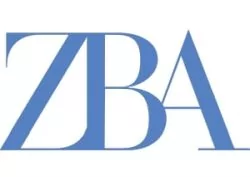Introduction
IBBI amended IBBI (Insolvency Resolution Process for Corporate Persons) Regulations, 2016 (CIRP Regulations) on 14 June 2022 (Second Amendment) to ease the corporate insolvency resolution process (CIRP) process and bring clarity on contentious issues. The Second Amendment aims to ease the CIRP process and ensure timely completion, which has been a plaguing concern for all stakeholders. The lack of information and records of the corporate debtor (CD) has delayed numerous CIRP processes and added additional (and unnecessary) workload of NCLTs. This is largely on account of unsupportive and (often) obstructive management of the CD which either refuses or deliberately delay sharing of information/documents with the resolution professionals (RPs) and lack of mandated information sharing. This article briefly discusses the key changes.
Onus of Creditors
The Second Amendment now puts onus on the creditors (i.e. financial creditors mostly) to provide information to the RPs including stock statement, receivables statement, valuation report, audit report, title search report, stock audit report, latest financial statements, forensic reports and any other information required for information memorandum, valuation of CD or generally for the CIRP process. This will certainly ease sharing of information and a resolution applicant will have more realistic view of the financial health of a CD. Undoubtedly, this will be helpful in resolution of CDs.
Valuation
Earlier there was a lack of clarity where very different valuations were submitted by the 2 registered valuers. While the regulations required the RP to obtain valuation from a 3rd valuer, it did not clarify what will constitute a “significantly different” valuation requiring a 3rd valuation. The Second Amendment now clarifies that a significantly different valuation will be a 25% difference in liquidation value which is to be calculated as L1-L2/L1, where “L” is liquidation value. This will bring clarity in the valuation of any asset and will help in reducing litigation arising out of valuation mismatches.
Avoidance Transactions
Avoidance transactions proceedings have been a concern for creditors. This is because often the avoidance transaction proceedings continue after approval of a resolution plan. The fate of such proceedings and distribution of proceeds were unclear. The Second Amendment now requires a resolution applicant to provide the manner in which (i) the avoidance proceedings will be pursued after approval of its resolution plan and (ii) the proceeds will be distributed. This is a significant change as this puts onus on a resolution applicant to come up with a road map on avoidance transaction proceedings, which is primarily the obligation of the RP. Additionally, the RP of a CD can seek information from its creditors for conducting preferential and any other avoidance transactions investigation.
Conclusion
The Second Amendment is a timely action by the IBBI and will simplify the CIRP Process. Banks/creditors will now have to comply with additional disclosure requirements imposed. In hindsight, this will be helpful in resolution of CDs and consequently, better recovery for the banks.
The above is a generic analysis and should not be regarded as a substitute for specific advice based on the facts of a client's objectives and specific commercial agreements reached. Please do reach out to us at mail@zba.co.in for any queries.


